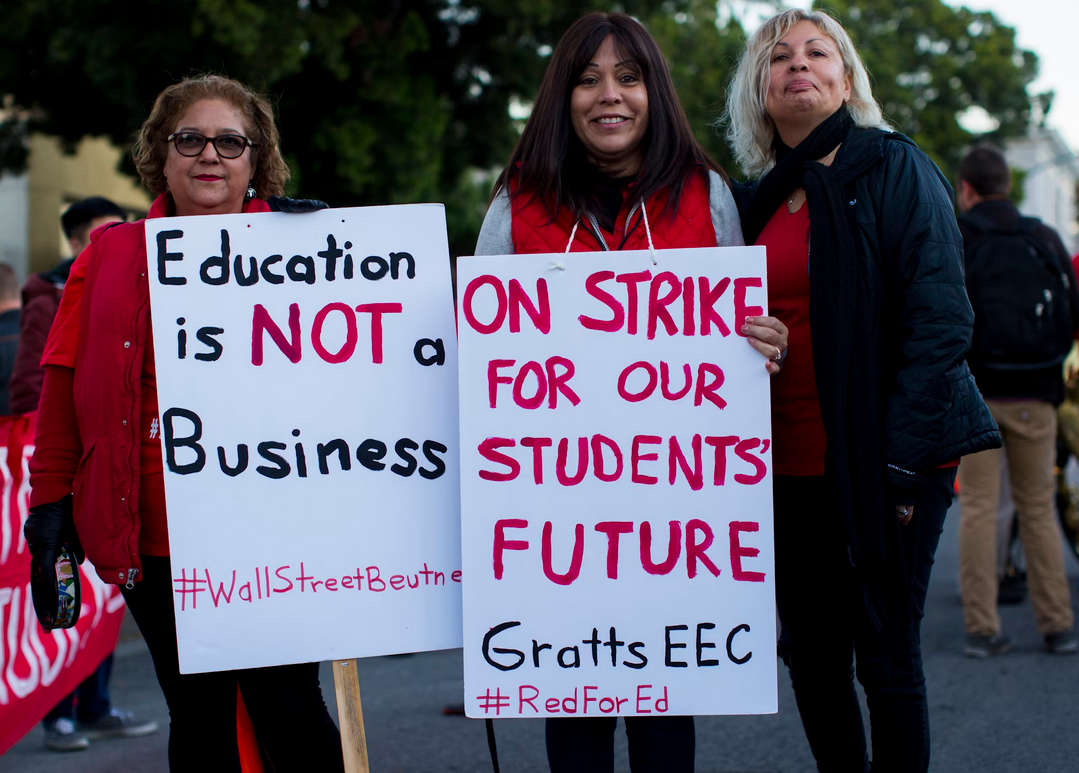
Experienced UIUC graduate student specializing in Math, Computer Science, and Writing
Availability:
Every day, 10:00am-10:00pm PST
Subjects:
Math
Computer Science
Writing
Pleasanton Mayoral Candidates Square off Over 10 Key Issues
Last Updated: 2024-08-30

- City Councilman Jack Balch challenges Incumbent Mayor Karla Brown over her record on housing, water safety, and economic growth.
- A successful study strategy involves reducing your cognitive load so you can focus
- Your planning system, your emotional state, and your environment all impact your cognitive load
In partnership with the Pleasanton Chamber of Commerce, Pleasanton Weekly hosted a forum for mayoral and city council candidates to discuss their perspectives on the issues ahead of the election in November. The positions of mayor and council members for areas 2 and 4 are in contention this year.
The mayor’s race features incumbent Mayor Carla Brown and challenger City Councilman Jack Balch. Balch claims he will change the status quo around Pleasanton’s red tape that hinders businesses and reckless public spending, while Brown points towards a record of economic growth and improved budgeting processes. The two clashed over their actions to secure clean drinking water and expand housing units.
Here are the 10 issues that came up during the forum:
Measure PP: Half-Cent Sales Tax
Brown:
Personally, I'm going to join our police union, our firefighter union, and our city employee union, and I'm going to support Measure PP. I think people in this city have come accustomed to concerts in the park, movies in the theater, Firehouse Arts that's thriving, a library that's open every day possible, senior centers.
But most of all, residents in our community have become accustomed to the best level of police and fire. If you need an emergency, I don't think anybody wants to talk about what's on the chopping block: closing a fire station. That's where your 911 calls come if you are in an emergency medical need.
So, I'm going to join our police, our fire, and our city employee union, and I'm going to support the half-cent sales tax. You deserve it.
Balch:
I spoke more than two years ago about the declining problems in our budget and tried to get my fellow council members to alter the course of spending to adjust and save and make minor cuts so that minor cuts over a length of time would lead to the savings that might help us.
We have the Measure 115 trust with $51.1 million in it because a 2018 council saw ahead and made plans by socking that money away, while this council prioritized a skate park. So when I am asked how I am voting for Measure PP, I have a difficult time with trust right now.
I don't know how I'm going to vote on it because, yes, we do have some structural challenges, and by far, additional revenues are one solution that will work. Is it the only solution? I can't tell you that
Public Safety: New Police Chief
Balch:
I expect that our city manager will do his job, as he does in a professional manner, and hire someone that's a professional who will meet with our residents, understand their concerns, both in support or maybe having a difficulty with our police force, and make sure that they listen to all of us
We see rising response times in our Police Department, up to now 5 minutes and 19 seconds, when we have a standard that we try to hold to 4 minutes.
I think we do have a staffing challenge in our Police Department. We know we've got to address it, and that's where the response time to our residents is so critical.
Brown:
A survey was done by the city of Pleasanton in 2023, and they asked questions of you residents: do you feel safe in our community? Over 90% gave it an excellent or good rating. Our police officers are incredible.
It is ultimately the decision of the city manager. We can make a request, but it is ultimately his decision. So I am sure, and I have great confidence in our city manager, Jerry Bowden. He's going to pick an excellent police officer for the top job as chief.
We budget every year for 83 officers; we have about 81 or 82, and those missing or light officers are in the training program right now, ready to serve shortly
Main Street Businesses
Brown:
We have new businesses coming to town. Mantra is going to be coming to the two-story building that has rooftop dining, so Mantra is under development right now. A Fremont-based company bought the old Christenson's, and they’re working with the city on what will be the best business going in there. Street closures come at no small cost to this city council.
We spend approximately $10,000 every week we shut down the street. That's not a minor expense, but we do it.
I think street closures are a huge hit. When I talk to businesses on Main Street, they’re thriving; they're having a wonderful time. We do bands in the street. I see kids riding their bikes under the Pleasanton Arch. It's fabulous, and it really has energized downtown Pleasanton. So I'm going to respectfully disagree that it's tired; it looks like fun to me.
Balch:
Our active ground floor use policy, that was put in place and tightened by my opponent and the council members, makes it difficult for businesses to locate here. We need to be looking at what impediments we have put in place for businesses to locate here.
Downtown Danville is doing well, and Livermore is thriving. When they look at Pleasanton, we are not open for business because our package checklist to get a permit to open downtown is thicker than all the others.
We need to bring back the downtown specific plan and look at how it can be a complement to increasing the vibrancy of downtown instead of a hindrance or an additional layer of government bureaucracy.
Housing Goals
Balch:
We tried to sue the state, and it cost us probably a lot more money than we anticipated.
Last year we only had 18 building permits issued: 11 were ADUs, seven were single-family homes, and we graduated 1200 seniors.
Pleasanton has been making some pretty poor choices in terms of how it evaluated sites. In my opinion, we did not bring on the East Side in '22 as I had asked for because my opponent and her majority had their opinion, and I respect it.
But we densified the rest of our community as a result. Now the East Side is looking like it will be annexed in, and instead of the 6,000 units of housing that we would have zoned, it will be approximately 6,800 units of housing.
It's got to be proactive leadership, not reactive leadership, and that's what I plan to do.
Brown:
The city of Pleasanton didn't sue the state. The city of Pleasanton had a ballot measure, and it capped how many housing units could be in our city. The goal, way before I was involved in politics, was to balance schools, water, and sewer infrastructure to the number of housing units. The housing unit that was balanced at that time by the leaders and those who gathered signatures was 29,000 housing units.
We were sued by a resident who said we were blocking their ability to move here with a housing cap. They sued the city and said, “You cannot put a housing cap. Even if the voters approved it, you can't put a housing cap in place for your city of Pleasanton.”
So it was the beginning of the chipping away of our ability to control our own destiny, what our city looks like, how many housing units there are, and what our community values are.
East Side Plan
Brown:
I was on the East Side Task Force before I was elected to office in 2012. There were a few years there we looked at some housing projects on the East Side. None of them met any of the regional housing needs allocation as you would see them today, which are more of a high density. They were single-family residences; there were about 2,200 of them, and as low as 1,750, but up to 2,200.
It drew a road—a four-lane road—between two of our drinking water lakes, Lake H and Lake I. As I said in my opening statement, public health is my number one priority. There are very few decisions I’m going to make as a mayor and a council member that will affect your health, but water is one of those.
A thousand residents came to public meetings and told the council (at the time I was a council member), “What the hell are you doing? We don't have enough water to even water our own plants. I'm having to save toilet water! I'm under stress, and now you're talking about over a thousand or 1,700 new houses?” Put it on hold. The leadership at the time, Mayor Jerry Thorne, put it on hold
We have an approved housing element with the state. The county does not, and that allows housing to go into the county, which we’re surrounded by, of course, in a way that’s not necessarily like our approved housing. So I’m definitely interested in learning more about it.
Balch:
I really appreciate Mayor Brown being very concerned about the drinking water. I’m a little challenged to understand how she then voted to allow Posos contaminated wells to possibly be reactivated in town.
This is going to be a major impact. It's approximately 800 units of housing, and we had an opportunity to include it in our environmental impact report for the housing element in 2022. At that time, it may have helped us understand how to mitigate some of those impacts. We never included it. I voted for inclusion, and my opponent did not. When we fast forward to today, that project was already a whisper back in 2022. We already knew the developer wanted to possibly do that.
If we don't annex it in, there's a proposed sewer treatment plant.
So, when we think about what county housing looks like versus Pleasanton housing, we probably need to think about those impacts when it's literally 30 feet, or a stone's throw, from our drinking water recharge lakes.
Water Safety and Rates
Balch:
The reality is that we must plan to use the 3,500 acre-feet water allotment to our groundwater basin that we are entitled to through the Zone 7 process. It represents 20 to 25% of our water supply.
We must work to diversify our water supply. Diversifying our water supply was something that this council had a choice on back in 2021, and I voted to stay within the alternative water supply study session with our retailers to try to find those solutions.
I voted against the contaminated Posos Wells 5 and 6 coming online because I believe that we as a community would rather conserve than have that type of water going into our pipes
We are going with the two-well solution currently in partnership with Zone 7. The partnership saves us a major amount of money. We hope it will work, we hope it will produce, and we hope that Zone 7, the groundwater basin manager, will be able to gain information to determine if it's a viable solution for us.
Our second option is to go to a Posos treatment plant by the Operation Service Center off Busch Road.
Our third option is actually to consider buying water directly from Zone 7 entirely, but it doesn't give us the reliability or the diversification that I think all of us would prefer to have. I've been working hard on that and challenging the assumptions for the water rates. I didn't believe that we challenged them enough, which is why I was unable to vote for the 30% water rate increase in 2024 and the 12% water increase in 2025.
Brown:
Nobody wants to raise water rates, but did you know our water fund would have been insolvent in two years? It would have been $25 million in debt in three years. You [Balch] did actually offer a 15% raise times two, which still adds up to 30%, but we don't want to raise water rates.
We diversified our water supplies—that’s what we're looking for. We're drilling three new test wells outside of the Posos plume with our business partners, our water partners at Zone 7. I’m endorsed by three Zone 7 water board trust commissioners. These test wells will let us know if we are achieving our goal: Can we provide clean, safe water without parts per trillion in Posos?
I’ve been firm about that the entire time I’ve been an elected official. I will not support drinking toilet-to-tap, as it is sometimes called, high-processed wastewater. We need to get clean, safe water. We sit on a quarter-million acre-feet in this Tri-Valley area, and the city of Pleasanton has the rights to pull 3,500 acre-feet—that’s an acre, a foot deep, times 3,500. We have the legal right to pull that amount of water at a very low cost.
Economic Development
Brown
I’m very proud to say that we set a new record for the most attendees from businesses at my State of the City.
The mall is alive and well, and we are going to make it better.
We granted an extension for Simon Property if they would provide $50,000 for seed money to collaborate with all the business owners. There’s an owner from Nordstrom’s, Sears, Simon, and what was the JCPenney store
We want to provide housing in the Stoneridge Mall area. That will be a transit-oriented, rich area right near BART and 580/680. People can walk to work—they can walk to 10x Genomics or Workday
This is exciting, and it’s new, and it’s what Pleasanton is going to look like. We’re going to revitalize these downtown businesses, but we’re also going to revitalize the mall with housing where people can shop right there and then walk home.
I’m excited about our businesses. As I said earlier, I’ve helped bring 10x Genomics here
Balch
I’m a CFO, so economic vitality is what I do. It’s actually my job.
I’m involved in a lot of discussions with businesses throughout the entire Bay Area. They’re having challenges—challenges with their labor force, long commutes for their labor force, and affordable housing.
We actually have a plan, and we need to implement it. The plan is outstanding. It talks about how we’ve implemented barriers to our businesses that make them choose other locations. We have approximately 60,000 people commuting in to fill jobs here and approximately 30,000 commuting out each day. So, we are a job center
We need to look at what red tape we have here when other cities are rolling out red carpets, like Livermore.
As we zone for housing, we need to ensure we’re not displacing the businesses we already have, as they are part of the conversation. They contribute to property tax, economic vitality, and the services we rely on
City Manager
Balch
I’m not going to give the City Manager’s performance review sitting up here—that’s inappropriate, in my opinion.
So, let me talk about my expectations for the leadership of our highest city manager position in our city. I expect professionalism.
I expect that you are able to talk to them, that you are able to communicate, even if you disagree, and that you are listened to—not just responded to, but listened to and understood. I expect our city manager to act with professionalism when they arrive and to instill those values in others.
Brown
We have an outstanding city manager. He brought a new perspective to what’s going on in our city. Along with our finance director, he introduced Asset Management, which was eye-opening.
Asset Management means setting aside money for things like replacing turf on Bernal Field or repairing the roof at the library before it gets black mold and ruins the books.
Setting aside funds through Asset Management has been one of Jerry’s significant contributions, in addition to his five-year budget plan, instead of just planning for two years and hoping we’ll find the money if we need it.
Along with our finance director, he’s ensured that we are setting money aside for critical needs so that we won’t have to go into debt just to buy a fire truck.
Leadership and Respect
Brown:
Sometimes it’s difficult to have respectful conversations while still agreeing to disagree. Sadly, not everyone can agree to disagree.
I’ve certainly used the gavel more than once, to stop people from talking over each other and being disrespectful. I want to run clean, respectful meetings.
Because of this thing called the [Ralph] Brown Act—nothing to do with me—we can only talk to one other council member…So, I would love to see more outreach to even people you disagree with, to have a respectful conversation even before you come into the council.
Some of our meetings, with Council agreement, have run over midnight. Yep, we start on Tuesday and we end on Wednesday. And so, it's probably somewhat expected that some people get just a little on the cranky side. But we run a clean meeting. We run a respectful meeting. I think it's exaggerated.
Balch:
I see it as a circus... let's just call a spade a spade. The challenge is, we can only control ourselves, right? So, I try to do my very best to control me.
It starts with the tone at the top. It starts with respecting the speaker, understanding that we are here to serve you, we are not here for ourselves.
I am borrowing this chair with the trust that you place in me for the term you elect me to have it. I try to uphold myself, despite my own personal flaws and experiences. I try to uphold myself to the values so that my son can watch a council meeting and not be disappointed in my actions.
Budget Shortfall
Balch:
We have a budget challenge. We saw it coming
As a result, the first solution is to come together as a community in an honest and truthful way to figure out where we’re at and then start looking at options.
Post-pandemic, we knew the mall was not coming back. We knew that the budget was betting on Costco, even when they didn’t have a building in place.
I tried to gain support from my fellow council members to not move a million dollars to the skate park from our General Reserve Fund at that time. The second year, I tried to argue against allocating $5.4 million additional dollars to the skate park from our operational account because we had ARPA money.
We actually had a deficit if we didn’t have the federal ARPA money.
We need to update developer impact fees, which haven’t been updated since 2018, especially as we look at all this housing that may come online in Pleasanton.
We need to pass along the credit card processing fees that I’ve already mentioned. We need to work with our school district to move their property from public property to private so they will go on the property tax roll.
We need to look at the travel and training budget of our city and reduce it immediately.
We need to find out why we’re maintaining the Century House roses and park for 10 years almost, without anyone being able to go there because it’s been closed to the public.
We need to look and understand that the CalPERS return was budgeted at 6.8%, and CalPERS has just announced a preliminary result of 9.3%.
And we have a section 115 trust that we can try to plan out. We need to work all of the solutions against the problem. Thank you.
Brown:
I was on the 2018 City Council when an actuarial hired by the city recommended a 115 trust. And what that means is, we are able to set aside a dedicated amount of money in a dedicated savings account just to pay down our CalPERS or our retirement pension for our city employees.
Now, CalPERS has two things. One is the ARC, and it is for our classic employees. They are the most expensive. But something happened really important on January 1st, 2013. At that time, Governor Jerry Brown started PEPRA, and it meant our city employees that were hired after January 1st, 2013, were going to stay longer and pay more into their own retirement.
That was a game changer. It makes our budget fiscally sustainable. Right now, 40% of our employees are in this lower tier, which we would call PEPRA. They will stay longer, they will put in more money, and that will help our budget to be sustainable.
But what else can we do? Obviously, we’re talking about a 10 to 13 million dollar cut out of 150 million. It’s about 9%. Should I take 9% across the board?
I can’t eliminate my roads
I can't eliminate my operations.
It’s going to be hard. And that's why I think it should be your decision. It will change Pleasanton forever—less maintenance, less grass cutting. We may even be selling the Century House. I don't know, but this will be a very difficult decision for the city.
But it should be your decision, and what you decide, I will do. You're the boss; we’re public servants, and actually, you're at the top of the organization chart.
Related Articles

Teacher Shortage Crisis: Overworked, Underpaid, Stretched Thin, Burnt Out

Remote Learning is a Game-Changer for Global Education

UN Initiatives Paint Optimistic Picture For Girls' Education

CA Prop 2: Borrowing $10 Billion to Repair Public Schools
